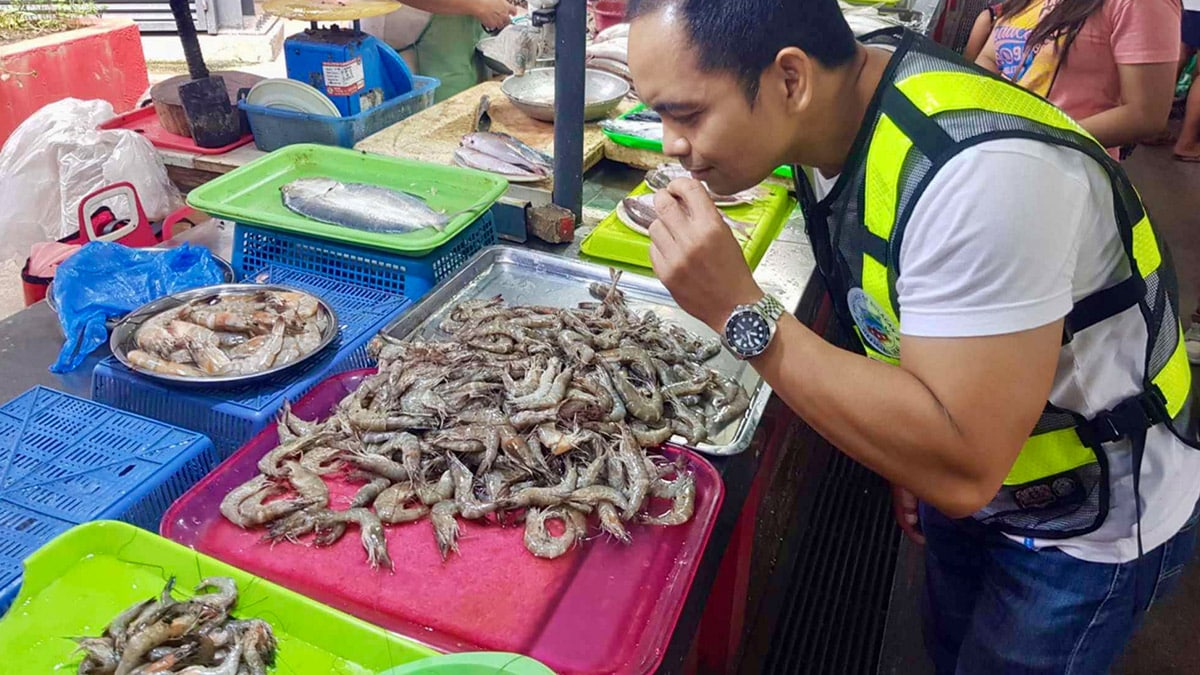Execs debunk oil spill effect on fish, seafood in Bulacan
CITY OF MALOLOS, BULACAN, Philippines — Fish and other sea products from Bulacan remained safe for consumption as the recent oil spill from MT Terranova, which sank off Bataan on July 25, did not affect the province’s waters, officials assured on Monday.
Julius Victor Degala, head of the Bulacan Provincial Environment and Natural Resources Office (Benro), said seafood and aquaculture products sold in Bulacan’s coastal towns tested negative for oil contamination based on informal sensory evaluations.
READ: Two-week delay seen in siphoning of oil from sunken tanker
Despite the safety assurance, Degala said there has been a noticeable decline in the demand and consumption of fish and seafood, likely due to public concern following news of the oil spill.
On Aug. 8, around 30 personnel from Benro, the Provincial Disaster Risk Reduction Management Office (PDRRMO), the Provincial Agriculture Office, and market masters inspected the fish stalls at the public markets in the towns of Hagonoy, Paombong, Bulakan, and Obando and Malolos City.
These agencies are part of the Bulacan Incident Management Team created by Gov. Daniel Fernando to monitor if the oil spill would affect the province.
Article continues after this advertisement“Based on the technical team’s findings, there is a general concern among the public about consuming fish and seafood, despite no confirmed reports of the oil spill affecting the province,” Degala noted in an interagency meeting at Hiyas Pavilion in this city on Aug. 9.
Article continues after this advertisement
SNIFF TEST An inspector from the Oil Spill Incident Management Team of Bulacan conducts a sniff test on seafood sold in a public market in the province on Aug. 8. The visits by the 30-member team in several markets in the province aim to ensure that products sourced from Bulacan waters remain free from oil contamination following the July 25 sinking of MT Terranova off Limay, Bataan. —Photo from Benro
Wilfredo Cruz, Central Luzon director of the Bureau of Fisheries and Aquatic Resources, also led a sensory evaluation on Aug. 1 and confirmed no traces of oil were found in fish and seafood sold in Bulacan. To demonstrate the safety of Bulacan’s seafood, Cruz and local officials took part in a boodle fight featuring “bangus” on the same day.
Initial projection
The Philippine Coast Guard (PCG) initially projected the oil spill would move southwards and affect coastal areas along Manila Bay in the provinces of Pampanga, Bulacan and Cavite and Malabon City in the National Capital Region.
Seafood sold in the towns of Hagonoy, Paombong, Bulakan, Obando and Malolos City—areas initially thought to be in the path of the spill—were typically sourced from Malabon, Hagonoy, Malolos City and Pampanga.
As of last week, however, the impact of the spill from Terranova, which was carrying 1.4 million liters of industrial fuel when it sank off Limay town in Bataan, was not as widespread as feared. So far, only Cavite’s coastal areas suffered from its impact.
Lt. Commander Michael Encina, the PCG’s spokesperson, reported during a National Disaster Risk Reduction and Management Council emergency meeting on July 29 that the oil leak from Terranova had significantly decreased, with the amount of spilled oil expected to dissipate naturally.
Low price
But the demand for fish in Bulacan continued to decline, forcing vendors to reduce their prices, Degala said.
He said they recommended an information drive to “reassure the public that Bulacan’s seafood is free from oil contamination.”
PDRRMO chief Manuel Lukban Jr. added that some retailers agreed that local suppliers should work to dispel misinformation about the oil spill.
Mar Trillana, a fishpond operator in Hagonoy, reported that daily sales of cultured bangus (milkfish) and tilapia raised in local fishponds and not in Manila Bay saw a 65-percent drop, from 50 tons to just 15 tons.
Fish vendor Jocelyn Lomotan, 61, lamented the “sluggish” sale at her stall at the Malolos City public market for the last three weeks, while Norma David, a fish dealer in Malabon, said her regular customers stopped coming to her stall in Sta. Maria town following the news of the oil spill.
But while others have reduced their prices, vendor Eleonor Garcia of Bulakan town said they maintained regular prices of bangus at P150-P180 per kilo and “galunggong” at P200 per kilo because “if prices are lowered, people might think the oil spill is real.”